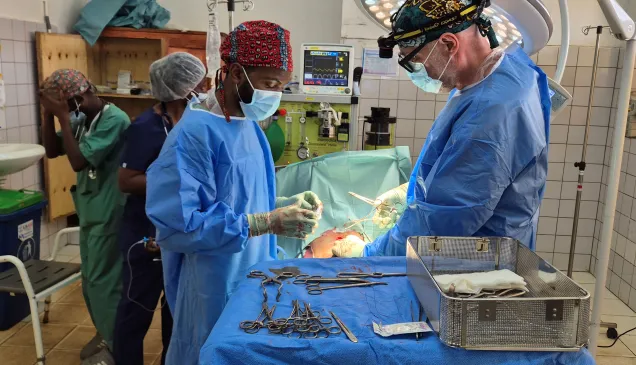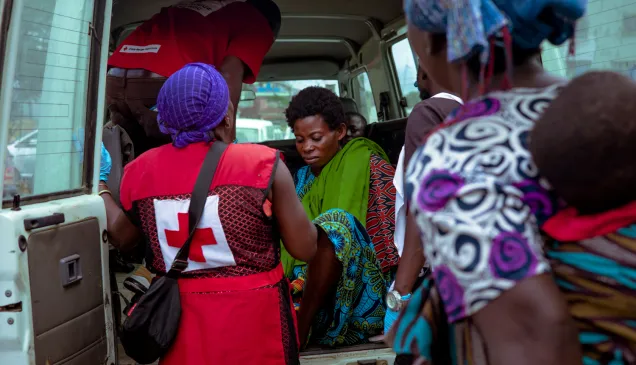Burundi: Fleeing violence, families face the agony of separation
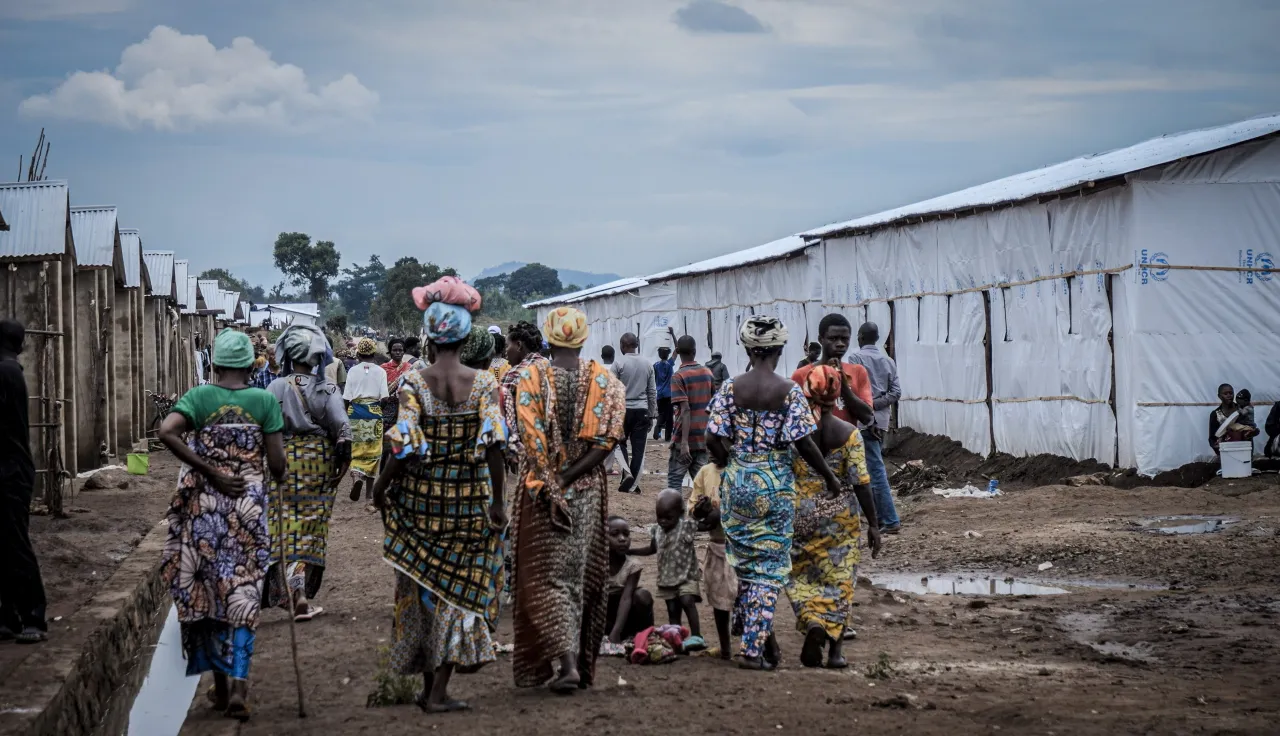
Long lines of makeshift shelters stretch across the hills. Each tent holds a story of escape - of lives uprooted overnight as families fled the escalating violence in eastern Democratic Republic of Congo.
Photo: Alphonse Dioh
The air in Musenyi camp, Burundi is thick with uncertainty. As children cling to their mothers, their eyes scan the dusty horizon for familiar faces that may never return.
Since the start of the year, tens of thousands of people have fled across the border here from eastern Democratic Republic of Congo (DRC), driven out by a surge in armed violence. They arrive in Burundi with little more than the clothes on their backs - and the unbearable weight of not knowing where their loved ones are. For many, the price of survival has been separation from the people who matter to them most.
In the chaos of conflict and flight, families are torn apart - sometimes in moments, sometimes during the course of days of uncertain travel. For those left behind or left wondering, each day without news is filled with anguish.
“I left messages for him with the Red Cross”
“I heard that a bomb had damaged my house,” says Sylvie Zawadi Miranyo, a mother of four now living in Musenyi camp in Giharo commune, southern Burundi. “So, I took my youngest child and we went home. When we arrived, there was a lot of fire. There was no way to get in. I asked where my husband was. I had left him at home.”
Sylvie has not seen him since. “I left messages for him with the Red Cross. So far, no response.”
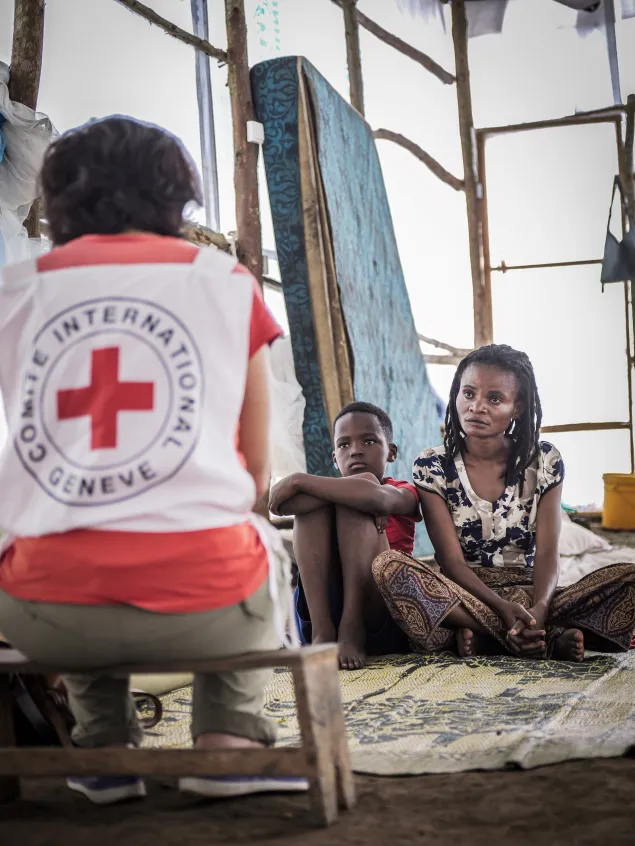
Sylvie Zawadi Miranyo in her tent in Musenyi camp where she is staying with her child. Sylvie doesn’t know what happened to her husband after their house was damaged by an explosion.
"We dispersed… And I couldn't find them"
For Daniela Mapendo Santana, who fled Goma and now lives in the Musenyi camp, the journey to safety was marked by fear and heartbreaking separation.
“I have three children. Two have stayed behind, and the third is the one I carry,” she says.
“I left Goma because there was crackling gunfire—people were killing each other, there were bombs.” After escaping to Bukavu, Daniela and her family boarded a boat, hoping to find peace on the other side. But danger followed.
“When we arrived in a neighborhood called Essence, there was a crackle of gunfire. We dispersed—and I couldn’t find my husband and two children.”
Now in Burundi, Daniela’s wish is a simple one: “What I would like to do is live with my children and my husband.”
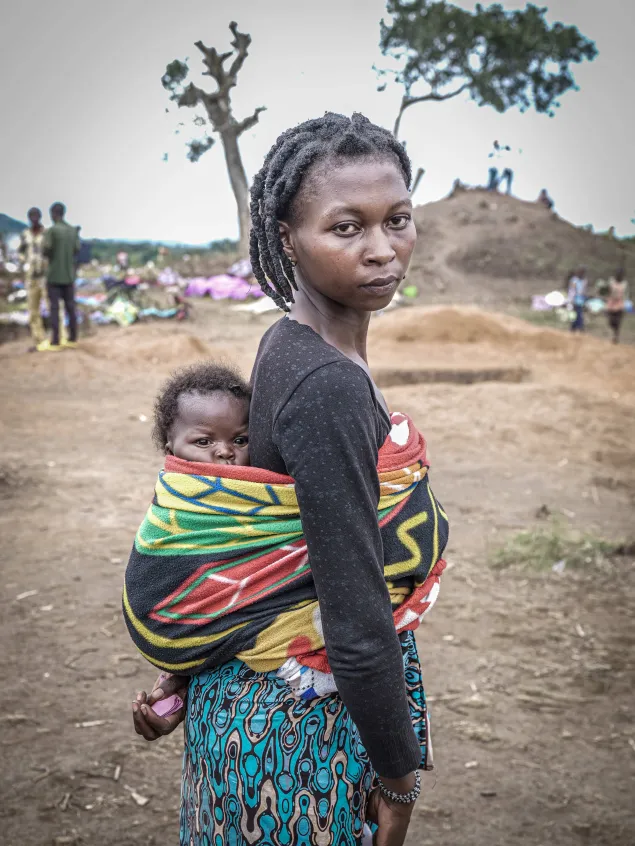
Daniela Mapendo Santana, a refugee from DRC, with her child. Daniela was separated from her family while fleeing violence in DRC.
A thread of hope for those searching for loved ones
For families like Sylvie’s and Daniela's, the International Committee of the Red Cross (ICRC), together with the Burundi Red Cross Society (BRCS) and the Red Cross Society of the DRC (RCDRC), provides a lifeline. Through the Red Cross’s Restoring Family Links services, displaced people can make free phone calls, charge their phones, and access the internet—basic but vital tools to try and reach missing loved ones. When phone calls and online messages aren’t enough, the Red Cross teams help trace those who’ve disappeared and work across borders to reconnect families.
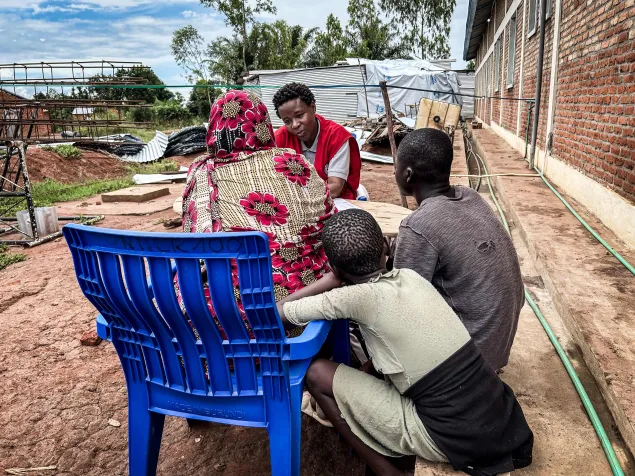
Noemie Niyongere, at ICRC Protection of Family Links program, registers separated families at Musenyi refugee camp in Burundi
The most vulnerable
“Recently, we registered an unaccompanied child who seems to be only a year and a half old,” says Noemie Niyongere, who works with the ICRC’s Protection of Family Links program in Burundi. “We don’t even know exactly how old he is because a guardian just picked him up on the road. We don’t know his name. But we are working with the DRC Red Cross and the ICRC office in Kinshasa to help find his family.”
Unaccompanied children like this little boy face extraordinary risks in times of displacement. Without a parent or caregiver, they are especially vulnerable to exploitation, illness, or further trauma.
For the Red Cross Movement, reuniting these children with their families is a matter of urgency.
When war tears families apart, it is connection - and hope - that carries them forward.

